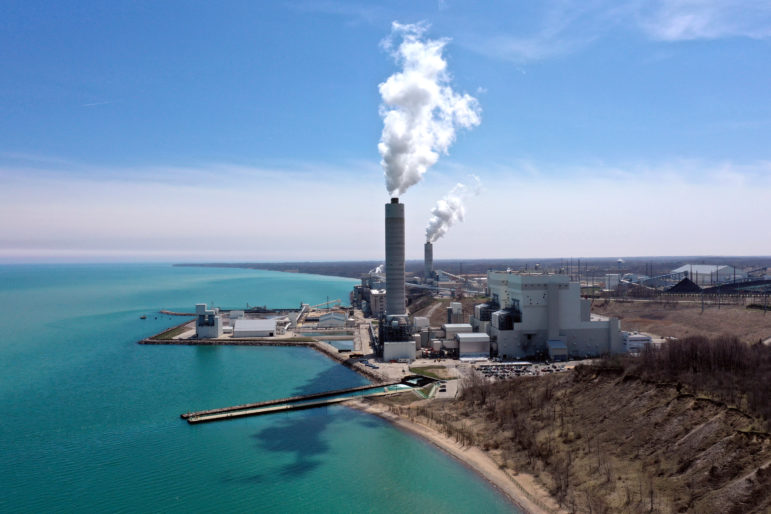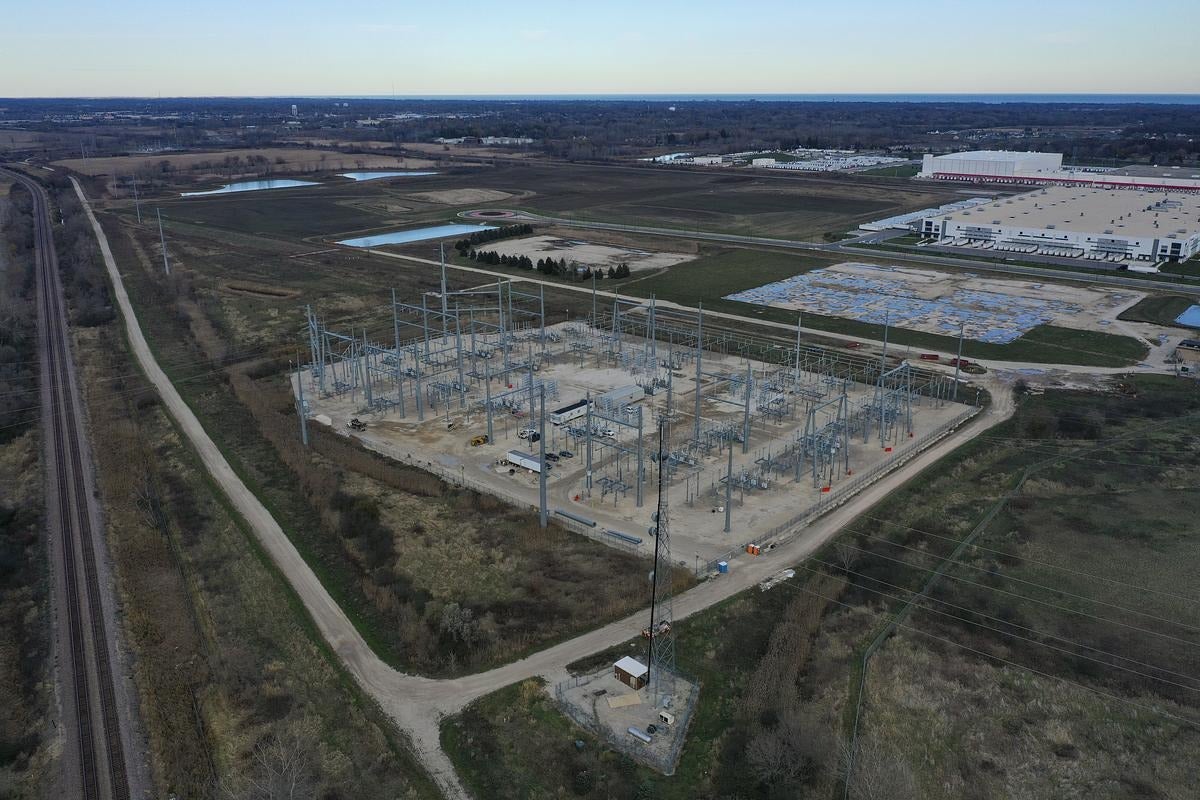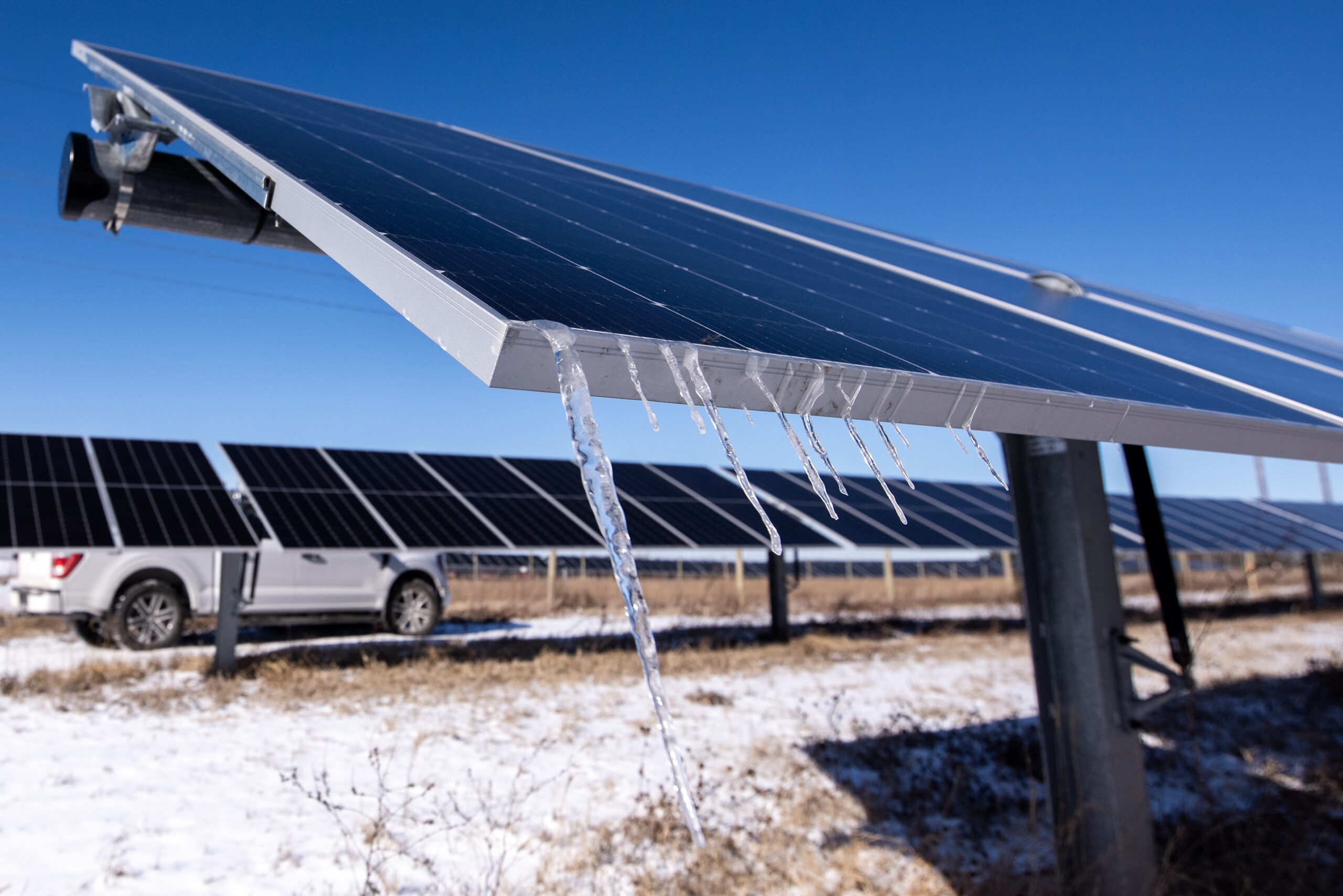The state’s largest utility announced this week that it will retire 1,800 megawatts of coal and natural gas generation as part of a $16 billion plan.
Gale Klappa, executive chairman of WEC Energy Group, made the announcement to investors in a conference call on Tuesday. The plan includes the retirement of the 1,100-megawatt South Oak Creek coal plant in southeastern Wisconsin over the next five years. The plant is owned by We Energies, a WEC Energy Group subsidiary.
In addition to the retirement of the South Oak Creek plant, WEC Energy Group said 400 megawatts of natural gas generation will be retired at plants in Weston and Marinette as early as 2023. Those plants are owned by another WEC Energy Group subsidiary, Wisconsin Public Service.
News with a little more humanity
WPR’s “Wisconsin Today” newsletter keeps you connected to the state you love without feeling overwhelmed. No paywall. No agenda. No corporate filter.
The remaining 300 megawatts of coal capacity that would be retired under the plan will be announced sometime in the next year.
The plan also devotes $2 billion to invest in 1,500 megawatts of renewable energy that would serve Wisconsin utility customers. The utility aims to invest in 800 megawatts of solar power, 100 megawatts of wind power and 600 megawatts of battery storage.
The proposed investment in renewable energy comes as the 150-megawatt Two Creeks solar farm began operation this week, which is owned by Wisconsin Public Service and Madison Gas and Electric.
WEC Energy Group also plans to purchase 200 megawatts of capacity in Alliant Energy’s West Riverside natural gas facility and build 100 megawatts of natural gas generation.
Klappa said the investments would allow the utility to retire 1,400 megawatts of coal by 2025.
“We’ll cut CO2 emissions, maintain superior reliability, lower operating costs, and grow our investment in the future of energy,” said Klappa.
The utility also announced efforts to reduce carbon emissions by 55 percent from 2005 levels in the next five years. WEC Energy Group previously announced its plans earlier this year to become carbon neutral by 2050.
Gov. Tony Evers has set a goal for the state to produce carbon-free electricity by 2050.
The utility’s five-year plan is the largest in the company’s history and represents an additional $1.1 billion investment over its previous five-year plan.
The Clean Power Coalition, which represents 25 groups in southeastern Wisconsin, celebrated the utility’s plans to transition away from fossil fuels in a Zoom press conference Friday. Coalition members have been urging We Energies to retire its coal plants and adopt renewable energy, including member Huda Alkaff, founder and director of Wisconsin Green Muslims.
“We all stand together today to support a just transition for all to a healthy, pollution-free efficient, and renewable energy sources, clean air and water for the community with family-supporting jobs rooted in our values of justice, equity, democracy and inclusion,” said Alkaff.
But the coalition of faith, environmental and social justice groups emphasized that more work is yet to be done, including the retirement of We Energies’ Elm Road Generating Station. The 1,200-megawatt coal plant is co-located at the Oak Creek site.
The plant includes some of the newest coal-fired units in the nation, according to Elizabeth Katt Reinders, deputy regional director of Sierra Club’s Beyond Coal Campaign. Those units have only been in operation for the last decade.
“What they’re committing to do is a massive shift from coal to clean energy in this decade. That is so critical for taking action on climate,” said Katt Reinders. “And, so, we want to see more of this.”
The Sierra Club wants to see WEC Energy Group and other Wisconsin utilities to commit to retiring all coal plants in the state by 2030, contending the move would save ratepayers millions of dollars.
The retirement of the Oak Creek plant follows other announcements made this year by Dairyland Power to shut down its Genoa plant by 2021, and Alliant Energy’s plans to shutter its Edgewater plant in Sheboygan by the end of 2022.
Shutting down coal-fired units at Oak Creek will also reduce pollution from wastewater that contains toxic metals, which is treated and discharged into Lake Michigan. An analysis by the Chicago Tribune found the plant was among the top 10 polluting plants in the country that released heavy metals into surrounding waters.
Rejane Cytacki, former executive director of the Eco-Justice Center in Racine, said citizens nearby the plant have worried about the health and environmental impacts of burning coal.
“We must insist that We Energies and WEC will help transition its current workforce in the Oak Creek plant into its new renewable projects, because their livelihoods matter too,” said Cytacki.
Brendan Conway, WEC Energy spokesman, said units 5 and 6 at South Oak Creek would be shut down in 2023 while units 7 and 8 will be shut down by 2024. Conway said around 180 workers at the plant would be impacted, and they’re working with them and their unions on transition plans in the coming years.
“Anything we can do, we will do for workers,” said Conway, noting some may retire or find jobs at other company plants.
Conway said the future of the Oak Creek site is still be determined, adding there are no specific plans about future renewable energy projects.
The utility expects customers will save about $1 billion over the next 20 years.
Consumer advocates have expressed concern over the possible looming costs to ratepayers as utilities transition from fossil fuels to clean energy. The Citizens Utility Board has said they want to make sure customers don’t pay twice for new projects while paying off investments in coal plants that will no longer be used.
Tom Content, executive director of CUB, has urged utilities to explore innovative financing to pay off those investments. Last year, the consumer advocacy group was part of settlement that was negotiated with We Energies after it shut down its Pleasant Prairie Power Plant.
The Public Service Commission approved a plan Thursday for the utility to refinance $100 million of costs for environmental controls installed at the plant. The move is expected to save customers around $40 million over time.
“As Wisconsin utilities look to spend billions over the next decade swapping fossil fuel power plants for cleaner technology, we strongly support securitization and other innovative financing tools as a way to soften the impact to customers that comes from retiring these facilities years or even decades earlier than intended,” said Content in a news release.
Wisconsin Public Radio, © Copyright 2025, Board of Regents of the University of Wisconsin System and Wisconsin Educational Communications Board.






